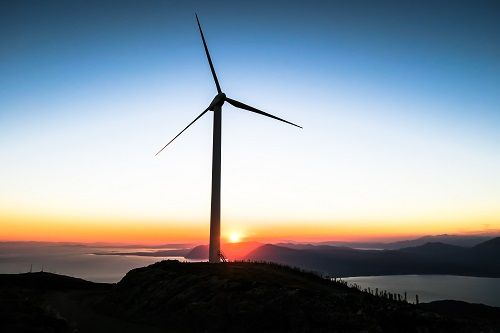Germany is currently in a poor position in international competition. One major disadvantage in this country is the high cost of energy. To ease the burden on companies, politicians and economists are now calling for a subsidized industrial electricity price. "The idea is obvious and perhaps well-intentioned, but it goes in completely the wrong direction", commented Markus W. Voigt, CEO of the aream Group. "Because an electricity price subsidy would slow down the trend towards low-cost green electricity."
It is true that many companies complain about expensive electricity. But in fact, prices for long-term power supply contracts have fallen sharply. "The price level of power purchase agreements (PPAs) is now almost back to the level it was before the Ukraine war", explains Voigt. Since their launch in Germany in 2019, PPAs have become increasingly popular. It's no longer just large corporations that are signing them with suppliers of electricity from solar and wind power. Medium-sized businesses are also getting on board as a way to control their energy costs and reduce their CO2 emissions at the same time.
"The price slide shows that a government-subsidized industrial electricity price is not necessary", Voigt says. Electricity customers could buy their own - provided, however, that they have a corresponding energy consumption. Although demand for PPAs is currently very high, it is often only possible to conclude them for consumption of 20 GWh/pa or more. "In order for smaller consumers to also benefit from these long-term supply contracts, the supply would have to grow more broadly", explains Voigt. And this is where the industrial electricity price comes into play.
The market for PPAs still lacks standardization. "But with existing demand, it will surely come," Voigt said. "This would make PPAs accessible to smaller electricity consumers." An industrial electricity price, however, would - depending on the model - halt that development. That's because demand for PPAs is driven not only by stable terms and defined volumes, but also, above all, by decarbonization pressure. If electricity is artificially cheapened, the pressure to cut CO2 emissions falls. If, on the other hand, subsidies are waived, the incentives to use green power instead of gas and to optimize consumption are maintained. "The price mechanism regulates this by itself", says Voigt.
The market for electricity supply contracts is in the process of opening up and is developing in the right direction - precisely in the "green" direction. With an industrial electricity price, this development would be torpedoed. "Instead of subsidizing, politicians should definitely let market forces work here", Voigt advises.
PRESSEKONTAKT:
Leandra Kiebach
T: +49 (0)211 30 20 60 4-2
E: lk@aream.de
